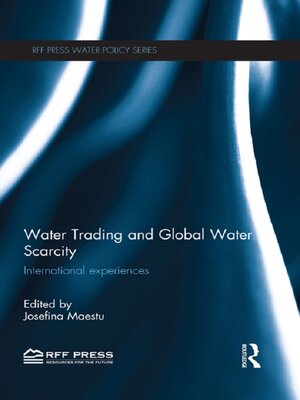Water Trading and Global Water Scarcity
ebook ∣ International Experiences · RFF Press Water Policy Series
By Josefina Maestu

Sign up to save your library
With an OverDrive account, you can save your favorite libraries for at-a-glance information about availability. Find out more about OverDrive accounts.
Find this title in Libby, the library reading app by OverDrive.



Search for a digital library with this title
Title found at these libraries:
| Library Name | Distance |
|---|---|
| Loading... |
Water scarcity is an increasing problem in many parts of the world, yet conventional supply-side economics and management are insufficient to deal with it. In this book the role of water trading as an instrument of integrated water resources management is explored in depth. It is also shown to be an instrument for conflict resolution, where it may be necessary to reallocate water in the context of increasing scarcity.
Recent experiences of implementation in different river basins have shown their potential as instruments for improving allocation. These experiences, however, also show that there are implementation challenges and some limitations to trading that need to be considered. This book explores the various types of water trading formulas through the experience of using them in different parts of the world. The final result is varied because, in most cases, trading is conditioned by the legal and institutional framework in which the transactions are carried out. The role of government and the definition of water rights and licenses are critical for the success of water trading.
The book studies the institutional framework and how transactions have been undertaken, drawing some lessons on how trading can improve. It also analyses whether trading has really been a positive instrument to manage scarcity and improve water ecosystems and pollution emission problems in those parts of the world which are most affected. The book concludes by making policy proposals to improve the implementation of water trading.







